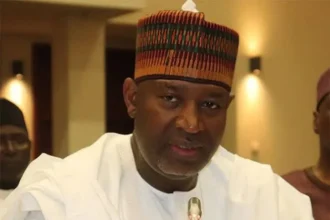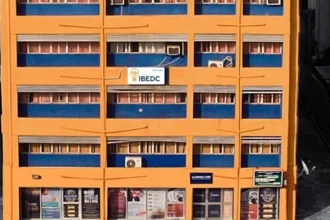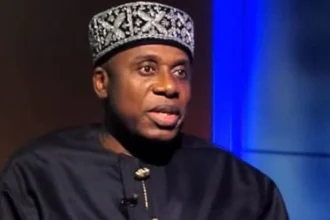...To get all news updates, Join our WhatsApp Group (Click Here)
Also Join our WhatsApp Channel (Click Here)
The Nigerian print media attracted a total of N23.7 billion revenue from advertising in 2015; representing a drop of N2.1 billion compared to N25.8 billion it recorded in 2014.
This information is contained in the just-released 2015 Mediafacts, a key media resource for marketing professionals in West and Central Africa produced annually by mediaReach OMD, a specialist media company that provides media planning, buying, control and inventory management services.
According to Mediafacts, “Lagos accounted for almost 100% of media spend on print medium” last year. Also, quarterly analysis of the total print advertising expenditure, shows that though there is almost an equal dispersion of spend across the four quarters, there is a marginal skew in spend in the fourth quarter with a total value of N4.7 billion. The first, second and third quarters attracted advertising values of N5.7 billion, N6.0 billion and N7.3 billion; respectively.
The 2015 Mediafacts further revealed that the trend of the advertising expenditure over the past 10 years showed that the print media attracted the highest amount of revenue of N25.8 billion in 2014. The figure for last year was primarily driven by the personal paid, corporate, public service, banking and finance, educational imparting knowledge/skill, communication/ telecommunication, hotel & catering, motor vehicles, transport & travel, building, construction & agriculture, electrical & electronics.
The report also identified religion, paycard, insurance, shopping, broadcast, cable TV, furniture & furnishings, computer & secretariat, as well as generators and others as the top 20 product categories that contributed to the print media revenue during the year under review. The report stated: “Top 20 categories contribute 96% of the total print media revenue in 2015. Corporate communication ads contributed 19% while personal paid announcements accounted for the bulk (37%).”
According to the Report, the top 10 advertisers on print in 2015 include: sundry advertisers (other inform. Services) – N12.3 billion; the State Government – N2.3 billion; sundry advertisers (Services) – N1.1 billion; university & other higher institutions – N1.0 billion and sundry advertisers (capital goods & equip) – N0.6 billion. Others are: Guaranty Trust Bank (N0.5bn), Etisalat (N0.3bn), Globcom (N0.3bn), MTN (N0.3bn) and Zenith Bank (N0.3bn).
Mr. Tolu Ogunkoya, Managing Director/CEO of mediaReach OMD, said “Nigeria’s media is one of the most vibrant in Africa. State radio and TV have near-national coverage and operate at federal and regional levels. All 36 states run at least one radio network and a TV station. There are hundreds of radio stations and terrestrial TV networks, as well as cable and direct-to-home satellite offerings.”
According to him, television viewing in Nigeria is concentrated in urban areas. “There are more than 100 national and local press titles, some of them are state-owned. They include well-respected dailies, tabloids and publications which champion ethnic interests. By 2014, 70.3 million Nigerians were online (Internetworldstats.com). Mobile phones are commonly used to access the web. Most Internet users are young, educated and urban”, he stated.
Ogunkoya noted that Nigeria’s economy is the largest in Africa while its manufacturing sector is the third largest on the continent producing a large proportion of goods and services for the West African sub region.
His words: “The Nigerian environment which is characterised with many investment opportunities seems to be the most attractive for foreign investors because of its liberal economic climate due to the following reasons:
The economy has been liberalised for full open market
100% foreign participation is now allowed in all sectors
Privatisation programmes and industrial development encouraged
Profit repatriation allowed
All laws that inhibit full functioning of a deregulated, free enterprise and market driven economy were removed from stature books.”
Following the April 2014 statistical “rebasing” exercise, he stated, Nigeria has emerged as Africa’s largest economy, with 2015 GDP estimated at US$1.1 trillion. Ogunkoya said: “Oil has been a dominant source of income and government revenues since the 1970s. Following the 2008-2009 global financial crises, the banking sector was effectively recapitalised and regulation enhanced. Nigeria’s economic growth over the last five years has been driven by growth in agriculture, telecommunications and services.”
He said: “the report gives in-depth coverage of Nigeria and Ghana’s media markets. Media practitioners in the West and Central African regions, and companies making inroads into the markets in these regions would find this publication useful”.
You can get every of our news as soon as they drop on WhatsApp ...To get all news updates, Join our WhatsApp Group (Click Here)
Also Join our WhatsApp Channel (Click Here)









